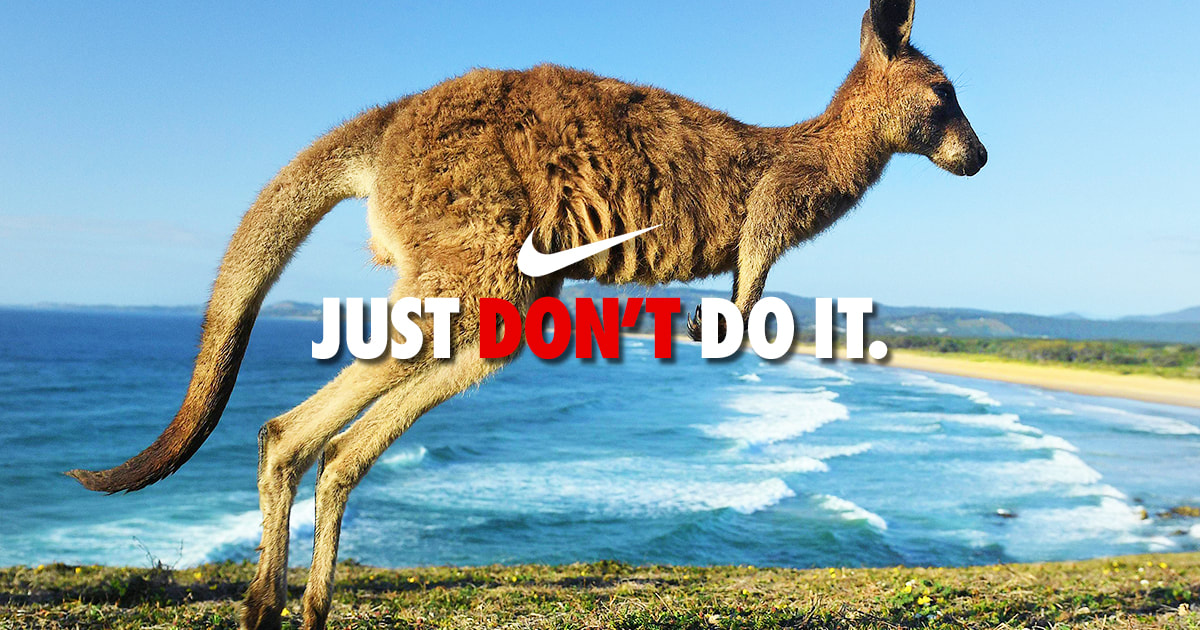 from Animal Wellness Action from Animal Wellness Action Portland Tribune, August 12, 2020 Joshua Marquis and Emily Ahyou 'We should expect companies like Nike ... to adapt and end their role in driving the slaughter of kangaroos.' Some older runners may recall a time when kangaroo skin was used in some running shoes, but are surprised to learn that, while greatly diminished, the practice still exists. A number of footwear giants, most significantly including Oregon's own Nike, the iconic brand founded by Phil Knight and Bill Bowerman. But Nike isn't alone in this reprehensible practice. Adidas, New Balance and Puma are among a dozen companies still using "K-leather," particularly for soccer cleats. Most of us find kangaroos charming. They're sociable boxers. The females carry their babies around in a pouch. They pose no threat to humans. The recent catastrophic fires in Australia called attention to these remarkable creatures, alerting the world to the effects of climate change and their fragile existence when their habitats are aflame. Even before the fires raged, these iconic symbols of Australia were the victims of human callousness and cruelty. The government blesses an annual massacre, conducted by commercial hunters, of upwards of 2 million kangaroos per year. The hunting practices are ruthless, often occurring at night, with the hunters shining a light on the marsupials and trying to shoot them in the head. If the victim is female, and lactating, there's an additional casualty: a "joey" yanked from the pouch and decapitated or swung by the legs onto a rock to bash in its head. Just as America protects the bald eagle, Australia must do better when it comes to kangaroos. The recent fires are a reminder of what's at stake. The state of California has banned the sale of shoes containing kangaroo leather, but buyers can still find them. But most consumers remain largely unaware of their role in wildlife exploitation, since the athletic shoe industry doesn't often explicitly label its fabrics. China has finally acknowledged that the rest of the world is repulsed by the dog-meat industry there, and we should expect companies like Nike, which highlight their social consciousness in advertising and as part of their corporate culture, to adapt and end their role in driving the slaughter of kangaroos. Nike and other companies already offer soccer cleats made from synthetic or plant-based fibers. There was a time when we slaughtered bison by the billions and hunted other species into extinction. That is an ugly era in our treatment of wildlife, and the kangaroo slaughter seems more than a little bit misplaced in the 21st century. Corporate talk of sustainability and social consciousness must have practical features. Those representations fall flat when you consider the company is behind the largest mammalian slaughter of wildlife in their native habitats in the world. The slaughter of kangaroos plays no legitimate role in Nike's corporate culture. It is instead something that any sane person or company would conceal and minimize. But in our era of global communications, there's no way to hide a body count of this scale. It's time for Nike to blaze a humane path and help push the take the entire industry out of the business of mass wildlife killing. Just do it. Joshua Marquis is director of legal affairs for Animal Wellness Action and lives in Astoria. Emily AhYou is Oregon state director of Animal Wellness Action and lives in Clackamas. ### Comments are closed.
|
JOSHUA MARQUIS on
criminal justice, animal welfare, and the nature of the relationship between popular culture and the law. Archives
March 2024
See the Archives page for an index of all posts, including those prior to January 2019.
Categories |